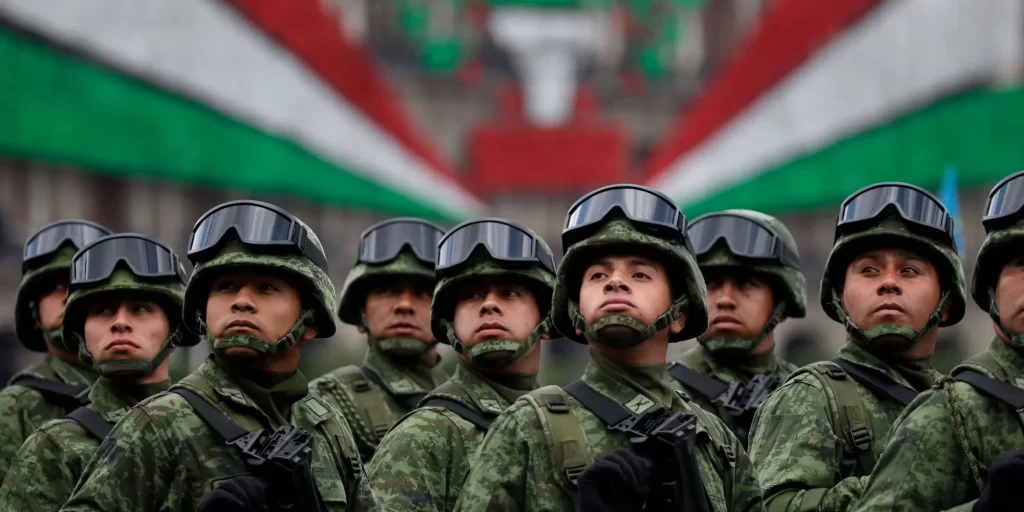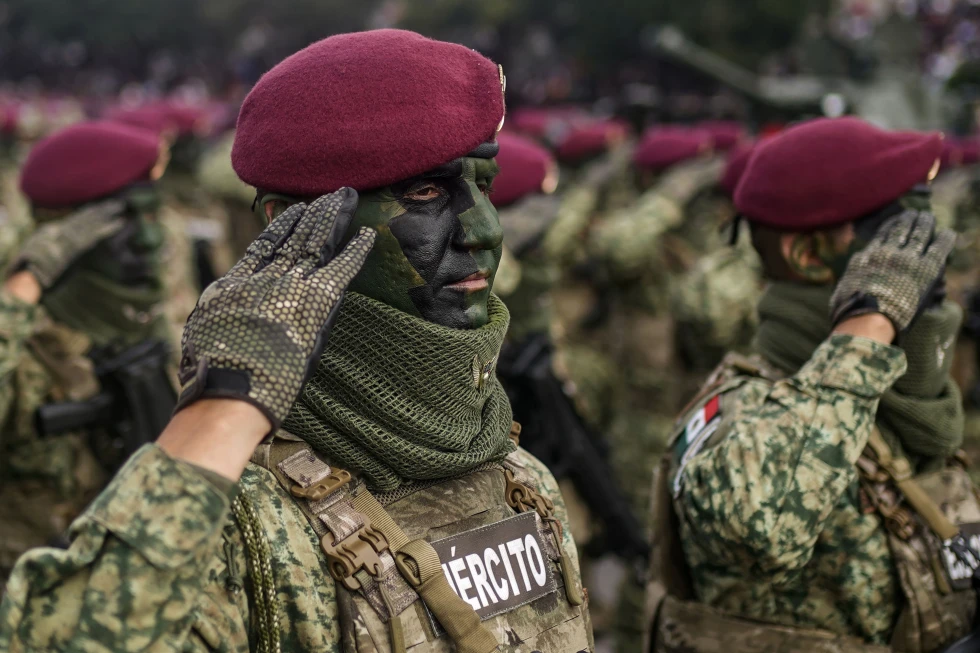Mexican President Claudia Sheinbaum announced Monday that the government will allocate funds saved by eliminating independent oversight and regulatory agencies to boost soldiers’ pay, marking the latest in a series of measures to increase the military’s influence and resources.

This move follows recent steps by Sheinbaum’s administration to generate new revenue streams for the country’s armed forces, which have taken on a growing array of roles in public infrastructure and law enforcement under her leadership. Last week, Mexico’s Congress approved a $42 per-passenger fee for cruise ship visitors, with a large portion of the proceeds designated for the military.
Since 2019, Mexico’s armed forces have been tasked with overseeing and operating key infrastructure projects, including railways, airports, and airlines. While these projects have symbolized the military’s growing role, they have also faced criticism for financial losses.
For over a century, Mexico’s military was largely apolitical and free of business entanglements. That changed under Sheinbaum’s predecessor and mentor, Andrés Manuel López Obrador, who saw the army as a loyal ally and central to his political agenda. López Obrador also gave the military and the quasi-military National Guard expanded roles in law enforcement.
Sheinbaum has continued to build on that legacy. Her Morena party has funneled significant resources into the military, with the elimination of regulatory bodies and the introduction of new fees to support the armed forces.

In late November, Mexico’s Senate, controlled by the ruling Morena party, approved the dissolution of seven independent regulatory and oversight agencies. These agencies previously handled functions such as anti-monopoly enforcement, energy market regulation, and freedom of information requests.
Sheinbaum defended the move as a cost-saving measure, asserting that government ministries could handle the agencies’ responsibilities more efficiently. However, critics warn that dismantling these watchdogs could lead to favoritism, reduced transparency, and unchecked government power.
Another controversial measure is the cruise ship passenger fee, which has drawn sharp criticism from the tourism industry. Mexican business chambers argue that the $42 per-passenger charge could hurt the country’s $500 million-a-year cruise industry. Two-thirds of the revenue from this fee will be directed to the army, rather than improving port facilities.
The government’s growing reliance on the military has coincided with financial challenges for several high-profile projects. One such initiative is the Maya Train, a tourist railway looping around the Yucatán Peninsula. Despite its launch on Dec. 16, 2023, the train has drawn only 20% of its anticipated ridership.
Authorities initially projected the Maya Train would attract 3 million passengers annually. However, as of Dec. 8, it had carried just over 600,000 passengers in nearly a year of operation. To boost ridership, the government announced a new “package tour” deal involving Mexicana, the government-owned airline also operated by the military.
Mexicana, which has struggled financially, will offer flights to Maya Train destinations departing from Mexico City’s Felipe Ángeles International Airport—another military-run project. The airport itself has faced operational challenges, achieving financial stability only after the government redirected cargo planes and some passenger flights there.
The Morena government is grappling with significant budget deficits as it funds large-scale infrastructure projects, including railways and oil refineries, many of which are built by the army. With projects like the Maya Train and Mexicana airline failing to meet financial expectations, the administration is increasingly seeking alternative revenue sources to sustain military operations and pay raises.
Critics have raised concerns about the military’s expanding influence and the potential erosion of transparency and accountability in Mexico’s governance. However, Sheinbaum remains steadfast in her approach, framing these measures as necessary for national progress and security.



